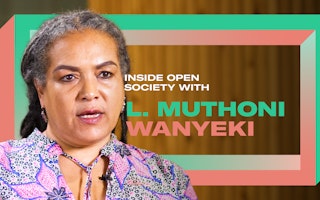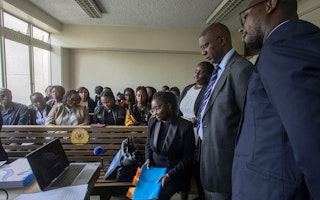Open Memo to President Obama: A To-Do List for the Africa Trip
By Sarah Pray & Toby Shepard
FROM: Sarah Pray and Toby Shepard
RE: Your To-Do List for the Trip to Senegal, Tanzania, and South Africa
DATE: June 26, 2013
Your trip to Senegal, Tanzania, and South Africa—your second visit as president to sub-Saharan Africa—affords you the opportunity to seal your legacy toward the continent. This legacy should define progress not just in economic terms, but also in advances in democracy. The opportunity for economic development and trade partnership with Africa is clear, but this cannot come at the expense of human rights.
When meeting with leaders in Senegal, Tanzania, and South Africa, we recommend your messages and policy prescriptions center on promoting the twin objectives of economic growth and good governance.
Senegal
Senegal is one of Africa’s bright spots. Last year’s election of President Macky Sall is an excellent example of the kind of credible, free, and fair elections we seek to promote across the globe. But you can encourage him to take the following steps to improve democratic governance and economic opportunity:
- Use the constitutional and judicial review processes to put into place separation of powers and more checks and balances on each branch of government.
- Follow through on the implementation of a new anticorruption body and ensure that it delivers on reducing both public and private sector corruption.
- Work to improve youth education and employment opportunities and make sure more public services are more efficiently delivered to vulnerable populations.
South Africa
In South Africa, the agenda is more complex because of that country’s role as a not just a regional power, but a continental power. South Africa is a key player in the regional economic community, Southern African Development Community (SADC), which is responsible for the top economic and governance issues for its 15 member states. Last year’s election of South African Nkosazana Dlamini-Zuma as Chairperson of the African Union Commission is an indicator of its importance as a continental leader.You can make the following points to President Jacob Zuma:
- Continue progress toward democratic goals like freedom of expression and combating corruption. Specifically, the government should not pass the Media Appeals Tribunal or the Protection of State Information Bill, both of which would significantly reduce press freedom.
- Press Zuma on South Africa’s role in resolving the crisis in Democratic Republic of Congo. South Africa is planning to send troops to Congo as part of a new UN force, but President Zuma can use his role as a leader in the region to push for security sector and electoral reform, greater accountability and rule of law in the country.
- South African leadership in shaping a firm SADC policy toward Zimbabwe is crucial to ensuring that its elections are as credible as possible. This includes sending observers early in the process and pushing the Zimbabwean government to allow the media and civil society to operate without interference from the government.
Tanzania
Although Tanzania is hailed as a beacon of hope in an otherwise troubled region, there are serious issues facing the country. Political interference during the constitutional review process and a marked deterioration in the freedom of the press are worrisome. New gas and oil deposits potentially hold the promise for increased economic development, but without proper governance, Tanzania runs the risk of falling victim to the resource curse. If not managed properly, the influx of natural resource revenues could lead to increased corruption or even conflict.
You should encourage President Jakaya Kikwete to do the following:
- Promote greater freedom of the press by lifting the ban on the Swahili newspaper, Mwanahilisi, which has exposed human rights abuses committed by Tanzania’s security forces.
- Ensure adequate consultation of Tanzania’s citizens during the current shortened constitutional review process.
- Implement more transparency and accountability policies, including the Open Government Partnership obligations, paying particular attention to natural resource management.
A Word About Kenya
The decision not to stop in Kenya has received much attention in the media. But it’s the right decision given the ongoing International Criminal Court proceedings against Kenya’s leaders for their role in the violence following the 2008 elections.
Kenya remains a key strategic partner for the U.S. and, while visiting neighboring Tanzania, meeting with Kenyan civil society would signal strong U.S. support as they continue to press for greater democracy and good governance.
Conclusion
The relationship of the United States with Africa is more crucial now than ever given Africa’s rapidly growing economy, which includes competition for its vast natural resources, and the many security challenges from the Sahel to the Horn to the Great Lakes region.
This trip signifies your commitment to follow through on your Presidential Policy Directive on Sub-Saharan Africa, which establishes the major, interdependent strategic priorities for Africa as strengthening democratic institutions, encouraging economic growth, advancing peace and security, and promoting opportunity and development. This trip is a chance to turn your policy proposals into actual outcomes that will help shape your legacy as a champion for both economic growth and democratic reform.

Until November 2021, Sarah Pray was the director of advocacy for the Open Society Economic Justice Program.
Until March 2017, Toby Shepard was a senior policy associate with the Washington, D.C., office of the Open Society Foundations.


